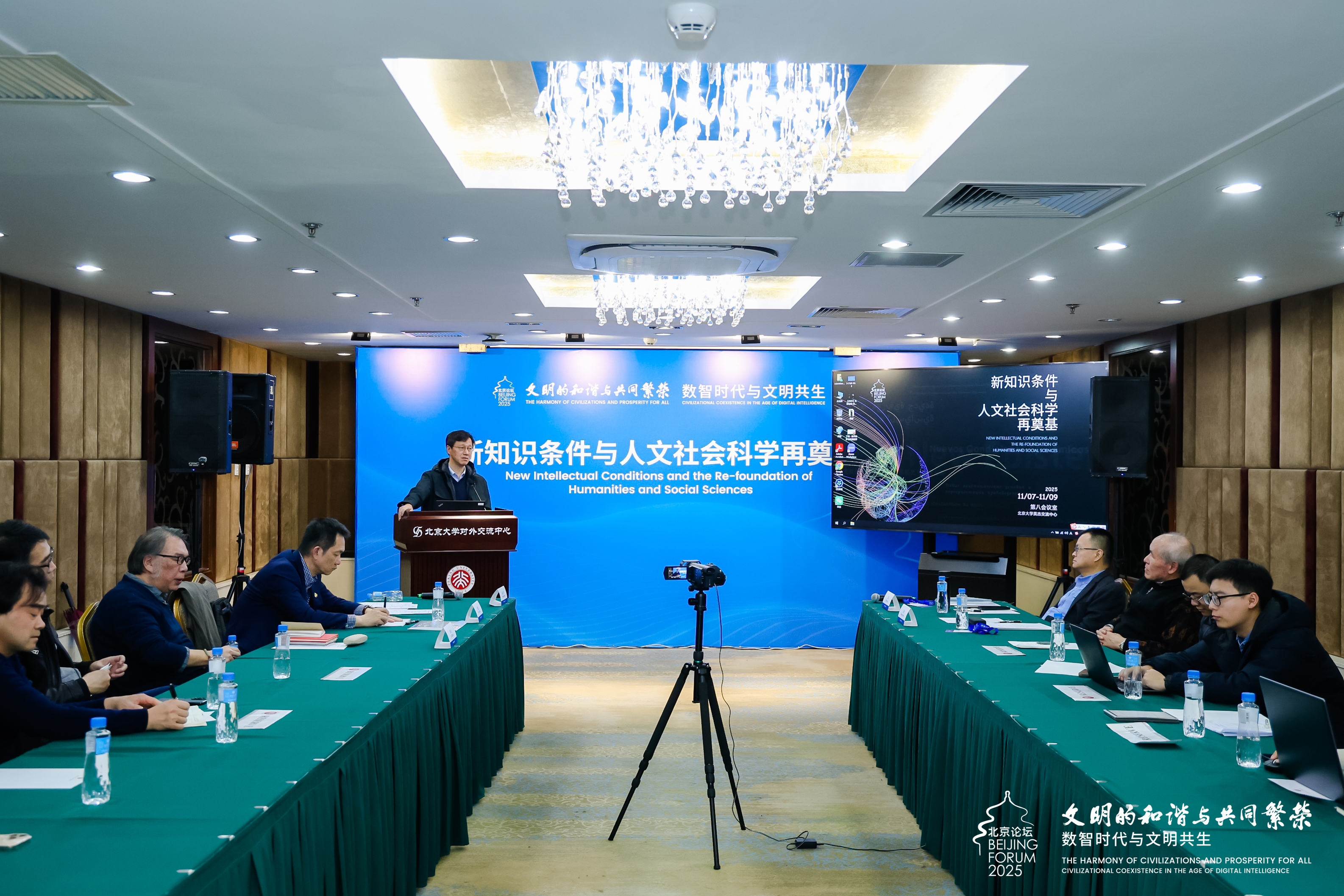 Peking University, November 12, 2025
Peking University, November 12, 2025: The Beijing Forum 2025 panel session “New Intellectual Conditions and the Re-foundation of Humanities and Social Sciences” brought together distinguished scholars, policymakers, and scientists to explore how the humanities and social sciences can adapt in a rapidly transforming world. Participants examined the intersections of science, technology, politics, and human values, highlighting the urgent need to reimagine intellectual foundations for the 21st century.
Ding Yun, Professor of Philosophy, Sun Yat-sen University, examined how civilization has evolved from sacred and axial ages into a modern vortex civilization where technology functions as a new theological force. “Human existence is increasingly defined by techno-theology, where meaning and agency are mediated through technology rather than traditional human-centered cosmologies.” Drawing on Heidegger’s concept of techno-theo-logic, Ding cautioned that as technology becomes central to life, the human element risks being lost, urging deeper reflection on how we define ourselves in this new era.
The discussions also addressed the political implications of modernization and governance. Yan Jirong, Dean and Professor of School of Government, Peking University, emphasized China’s unique path to modernization, asking how this experience contributes to global political knowledge. “Our experience shows that effective governance relies on a mission-oriented political party, an autonomous state, proactive leadership, and adaptive policy-making,” he said. These practices, he suggested, challenge established political theories and offer fresh frameworks for political science.
Yves Sintomer, Professor of Political Science, Paris 8 University, explored the shifting meaning of sovereignty in an era of globalization and artificial intelligence, suggesting that sovereignty may now extend beyond the nation-state and demand new paradigms in political research. Peo Hansen, Professor of Political Science, Linköping University, meanwhile, revisited the European Union’s founding narratives, arguing that its reluctance to confront its original political aims complicates today’s understanding of Europe’s geopolitical role.
Across the discussions, a common theme emerged: the humanities and social sciences must be reimagined to address the ethical, philosophical, and societal challenges of a rapidly changing world. Participants emphasized that scientific and technological progress must be accompanied by humanistic inquiry capable of guiding societies through moral and political uncertainty. As Ding Yun observed, “We need to ask not just what we can do with technology, but what it means for us as humans.”
The session reaffirmed the vital role of scholars in building knowledge that bridges disciplines, anticipates challenges, and sustains the ethical and philosophical foundations of society in an age of unprecedented transformation.
Written by: Xu Ziyue, Akaash Babar
Edited by: Chen Shizhuo
Photo by: Office of International Relations
